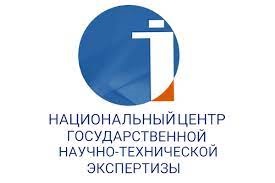PARAMETERS OF TEXT-DISCOURSE IN R. POWERS’S WORK “THE OVERSTORY”
https://doi.org/10.55491/2411-6076-2023-3-112-117
Abstract
This article attempts to analyze the text of R. Powers’s literary work "The Overstory" to identify the author's guidelines for producing the semantic content and new linguistic phenomena that modify the compatibility of significant lexical units in the composition of utterances. Based on the theory of author's consciousness (AC), introduced by the Doctor of philological sciences Butakova L.O., the conducted analysis allows defining the "author's" in the text, referring the researchers to the text producer’s linguistic personality. According to the researchers, the MEMORY concept is an essential component of the producer's concept system, acting as a source of semantic content and a bridge between the past (MEMORY) and the fictional (QUASI MEMORY). The content analysis of the text-discourse is carried out with the identification of markers of the textual content of the "global novel" according to the definition of the Italian researcher of the narrative Possamai D. These markers are precedent names, internationalisms, proper names indicating historical and geographical realities, non-usual verbal usage with a modification of the compatibility of lexical units and signs of sub-genre diffusion, manifested in the mixture of artistic and journalistic styles. The revealed data make it possible to establish the modification possibilities of natural language (English, American version), the degree of its flexibility in "support" of the author's statements, and the formation of new meanings.
About the Authors
K. A. MyachinM.Kozybayev North Kazakhstan University
Kazakhstan
Konstantin Aleksandrovich Myachin - Candidate of philological sciences, senior lecturer at the "Germanic and Romance Philology" Department.
Petropavlovsk
M. K. Abayeva
Abai Kazakh National Pedagogical University
Kazakhstan
Madina Kabylkyzy Abayeva - Candidate of philological sciences, associate professor, the Department of Russian Language and Literature
Almaty
I. A. Olkova
M.Kozybayev North Kazakhstan University
Kazakhstan
Irina Aleksandrovna Olkova - Candidate of philological sciences, senior lecturer at the "Germanic and Romance Philology" Department.
Petropavlovsk
References
1. Abayeva M.К. (2008) Phrazeologizmy so znacheniem intellektualnoi deyatelnosti s pozicii kognitivnoi teorii. /Аvtoreferat: Аlmaty, 2008. – 28 s. [Phraseologisms with the meaning of intellectual activity from the standpoint of cognitive theory / Abstract: Almaty, 2008. – 28 p.] (in Russian)
2. Butakova L. O. (2001) Avtorskoe soznanie kak bazovaya kategoriya teksta: kognitivnyj aspekt: dis. … d-ra filol. nauk: Omsk, 2001. – 457 s. [Author's consciousness as a basic category of the text: cognitive aspect: dis. of the doctor of philological sciences: Omsk, 2001. – 457 p.] (in Russian)
3. Lotman Yu.M. (2018) Struktura hudozhestvennogo teksta. Analiz poeticheskogo teksta, Sanrt Peterburg: “AzbukaAttikus”, 2018. – 704 s. [The structure of the artistic text. Analysis of a poetic text. Saint Petersburg: “Azbuka-Attikus”, 2018. – 704 p.] (in Russian)
4. Myachin K.A. (2021) Osobennosti smyslo- i tekstoobrazovaniya proizvedenij sovremennoj prozy kak otrazhenie avtorskogo soznaniya (na materiale proizvedenij laureatov Pulitcerovskoj premii): dis. … kand. filol. nauk: Omsk, 2021. – 247 s. [Peculiarities of meaning and text formation in the works of modern prose as a reflection of the author's consciousness (based on the works of Pulitzer Prize winners): dis. of the candidate of philological sciences: Omsk, 2021.- 247 p.] (in Russian)
5. Nguyen V. T. (2015) The Sympathizer, New York: “Grove Press”, – 2015. – 367 p.
6. Paducheva E. V. (1996) Semanticheskie issledovaniya, Moskva: “Yazyki russkoj kul'tury”, 1996. – 464 s. [Semantic research, Moscow: The languages of Russian Culture, 1996. – 464 p.] (in Russian)
7. Possamai D. (2018) Morfologiya sovremennogo russkogo romana: chto izmenilos'? // Filologicheskie nauki. – 2018. – № 2. – S. 76–78. [Morphology of the modern Russian novel: what has changed? // Philological sciences. – № 2. – P. 76-78] (in Russian)
8. Powers R. (2019) The Overstory, London, UK: Penguin Random House, 2019. – 625 p.
9. Skrebcova T.G. (2020) Lingvistika diskursa: struktura, semantika, pragmatika. Kurs lekcij. – M.: Izdatel'skij Dom YASK, 2020. – 312 s. [The linguistics of discourse: structure, semantics, pragmatics. The course of lectures. Moscow: “Dom Yask” Editorial House, 2020. – 312 p.] (in Russian)
10. Whitehead C. (2016) The Underground Railroad, New York : “Doubleday”, 2016. – 313 p.
11. Zalevskaya A. A. (2005) Psiholingvisticheskie issledovaniya. Slovo. Tekst, Moskva: “Gnozis”, 2005. – 542 s. [Zalevskaya A.A. (2005) Psycholinguistic research. Word. Text., Moscow: “Gnozis”, 2005. – 542 p.] (in Russian)
Review
For citations:
Myachin K.A., Abayeva M.K., Olkova I.A. PARAMETERS OF TEXT-DISCOURSE IN R. POWERS’S WORK “THE OVERSTORY”. Tiltanym. 2023;(3):112-117. https://doi.org/10.55491/2411-6076-2023-3-112-117
JATS XML

















